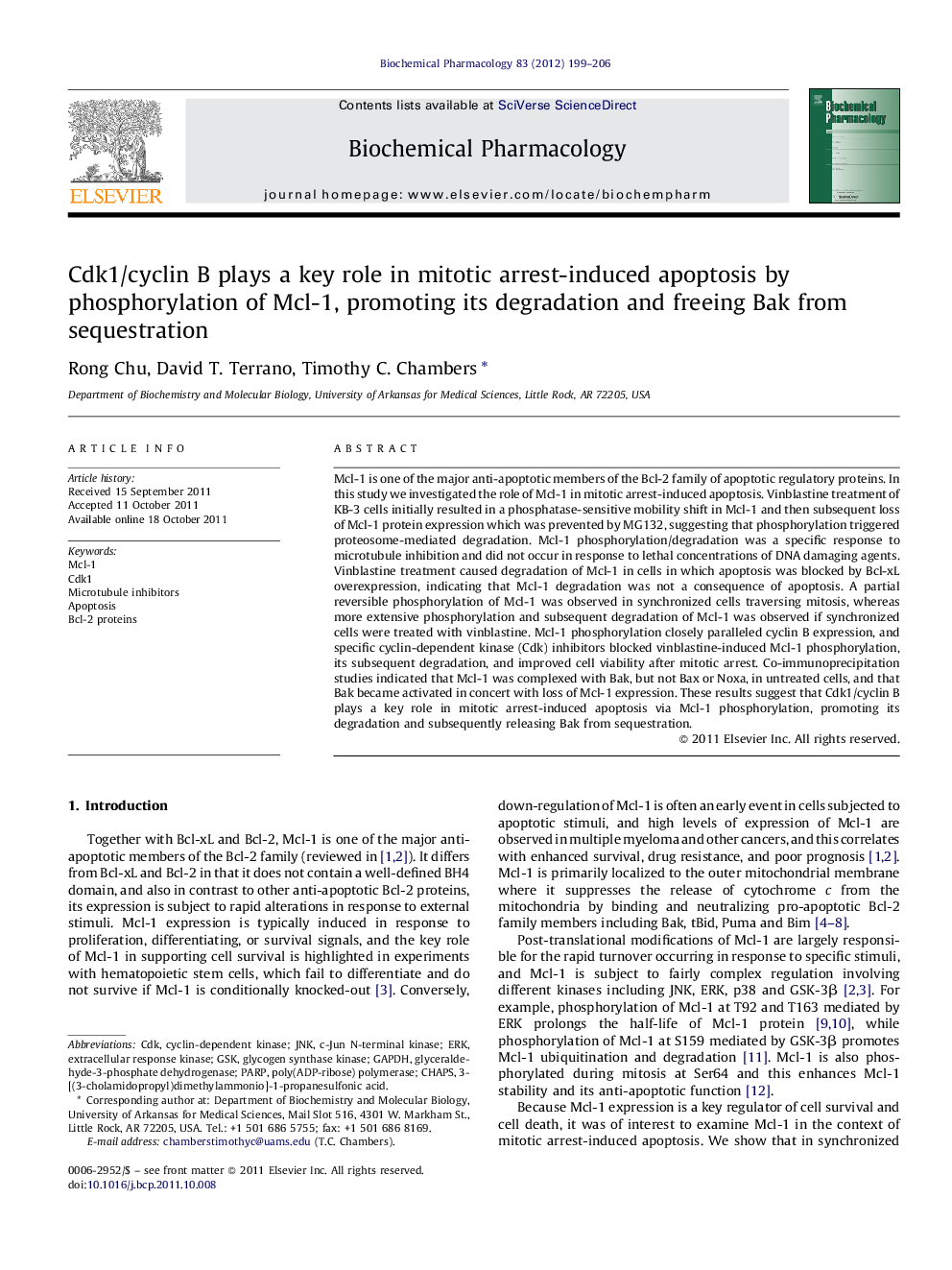| Article ID | Journal | Published Year | Pages | File Type |
|---|---|---|---|---|
| 2513687 | Biochemical Pharmacology | 2012 | 8 Pages |
Mcl-1 is one of the major anti-apoptotic members of the Bcl-2 family of apoptotic regulatory proteins. In this study we investigated the role of Mcl-1 in mitotic arrest-induced apoptosis. Vinblastine treatment of KB-3 cells initially resulted in a phosphatase-sensitive mobility shift in Mcl-1 and then subsequent loss of Mcl-1 protein expression which was prevented by MG132, suggesting that phosphorylation triggered proteosome-mediated degradation. Mcl-1 phosphorylation/degradation was a specific response to microtubule inhibition and did not occur in response to lethal concentrations of DNA damaging agents. Vinblastine treatment caused degradation of Mcl-1 in cells in which apoptosis was blocked by Bcl-xL overexpression, indicating that Mcl-1 degradation was not a consequence of apoptosis. A partial reversible phosphorylation of Mcl-1 was observed in synchronized cells traversing mitosis, whereas more extensive phosphorylation and subsequent degradation of Mcl-1 was observed if synchronized cells were treated with vinblastine. Mcl-1 phosphorylation closely paralleled cyclin B expression, and specific cyclin-dependent kinase (Cdk) inhibitors blocked vinblastine-induced Mcl-1 phosphorylation, its subsequent degradation, and improved cell viability after mitotic arrest. Co-immunoprecipitation studies indicated that Mcl-1 was complexed with Bak, but not Bax or Noxa, in untreated cells, and that Bak became activated in concert with loss of Mcl-1 expression. These results suggest that Cdk1/cyclin B plays a key role in mitotic arrest-induced apoptosis via Mcl-1 phosphorylation, promoting its degradation and subsequently releasing Bak from sequestration.
Graphical abstractFigure optionsDownload full-size imageDownload as PowerPoint slide
